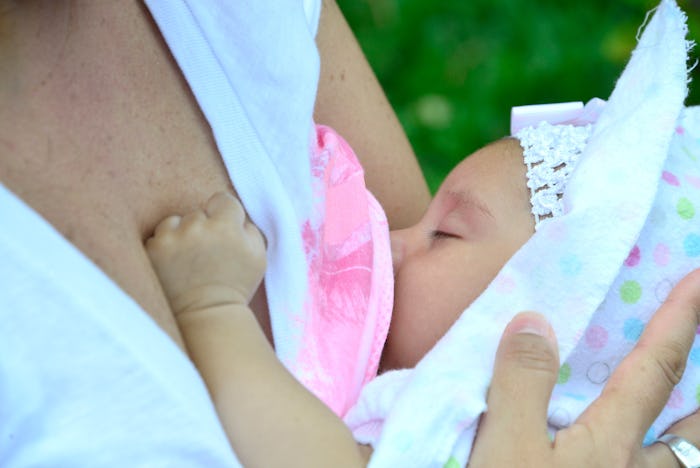Life

Moms Who Receive Breastfeeding Education Are More Likely To Continue Breastfeeding
For some new moms, breastfeeding is a delightful, joyous part of motherhood. For others, it's nothing but a source of frustration. But new guidelines might be able to close the gap on those perspectives, so that moms who want to breastfeed are able to do so easier and with less dread. The U.S. Preventive Services Task Force (USPSTF) is now updating its recommendations to state that moms who receive breastfeeding education are more likely to continue much longer for a whole host of reasons. The USPSTF is a government-backed, independent organization that surveys medical evidence and it hasn't updated its breastfeeding guidelines since 2008. After analyzing 43 previously published studies about support efforts for women who breastfeed and how long they do it, its finally bringing things up to date.
There's no evidence about what kind education is better, but Carrie Patnode, the lead author of the USPSTF review concluded that, “interventions that included prenatal education, support at or around the time of delivery, and postpartum support were more beneficial than those that only provided prenatal support, for instance."
It sort of make sense that support and education would help. One of the main reasons some breastfeeding moms quit is over concerns about milk supply and worries about nutrition, according to a study funded by the Food and Drug Administration; Receiving education about how to start breastfeeding, as well as how to troubleshoot when you head home from the hospital, could curb some of those fears.
In even better news, the new guidelines ease up a little bit on "pressuring" new moms to breastfeed. The USPSTF still agrees with medical research that recommends mothers breastfeed their newborns for at least the first six months. The Centers for Disease Control reports that breastfeeding can reduce allergies, sudden infant death syndrome, and the risk of childhood obesity for the infant as well as lower the risk for depression and bone deterioration for the mothers. But the new USPSTF guidelines go easy on mothers who either can't or choose not to breastfeed.
Dr. Valerie Flaherman, a researcher at the University of California, San Francisco who wrote about the study told Reuters, "Doctors and nurses should provide mothers with information and education regarding the benefits of breastfeeding, but we should not pressure mothers to breastfeed, and mothers should not be made to feel guilty if they are unable to breastfeed or decide that it is not the best decision for their family."
Did you hear that, moms, everywhere? You don't have to feel like a "bad mom" because you don't want to or are unable to breastfeed your baby, so you can use that new recommendation on every judge-y mom you run into. And now that health professionals, hospitals, and clinics are really advising mothers on how not to throw their breast pads in the air in frustration, new moms should feel more supported than ever in their quest to get the hang of it.